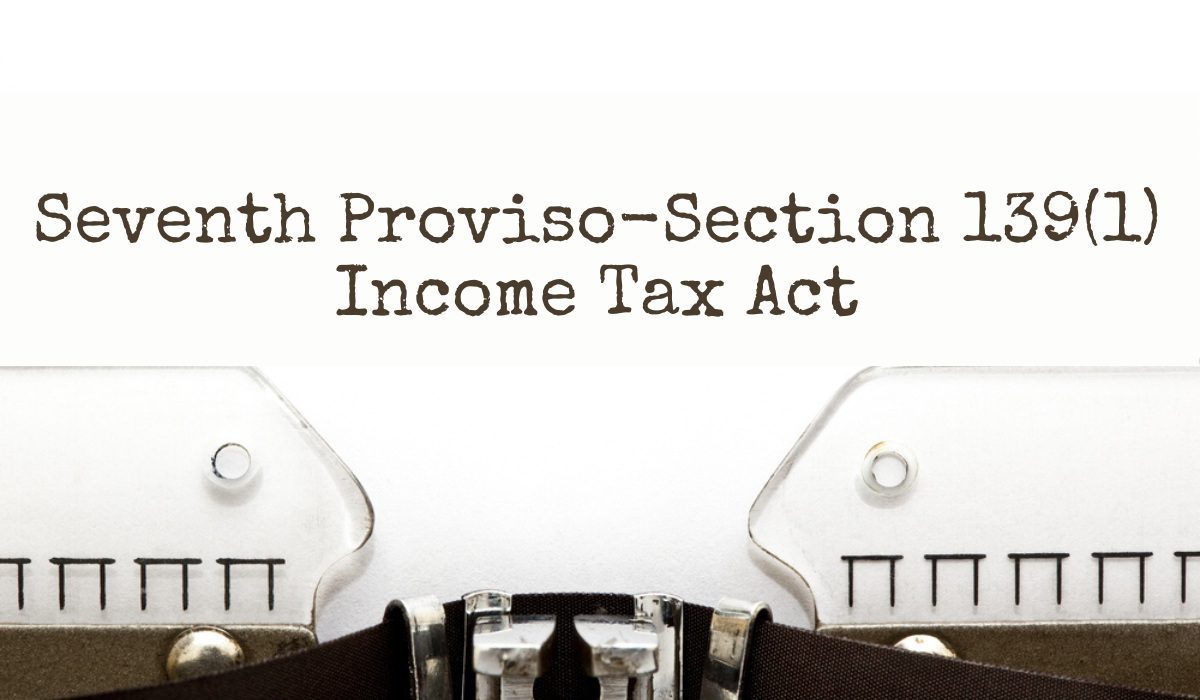Effective April 1, 2020, the Finance Act, 2019 added the Seventh Proviso to Section 139(1) of Income Tax (I-T) Act, 1961. Under this act, some certain individuals have to necessarily file the Income Tax Return (ITR), even if the basic income tax exemption limit is more than their total income.
What is the Seventh Proviso to Section 139(1) of the Income Tax Act?
All people who carry out high-value transactions in a financial year have to necessarily file income tax returns according to the 7th Proviso to Section 139 (1) even when their total income may be less than the exemption limit.
To ensure that such people file their ITR, the Finance (No. 2) Bill, 2019 added the Seventh Proviso to Section 139 of the IT Act. The Seventh Proviso has included an added clause under which if a person has been involved in executing high value transaction mentioned under the section, then an ITR should be filed by that person.
What are the high-value transactions specified under Seventh Proviso to Section 139 (1) that regulate people to file an ITR?
According to the Finance (No. 2) Bill, 2019, it is mandatory for a person to file his return of income, if during the previous year if he has done either of the following.
- If one or more current accounts have a total deposit of more than Rs 1 Cr.
- If electricity bill for a financial year is over Rs 1 Lakh.
- If foreign travel expense is more than Rs 2 Lakh in a financial year.
Who are covered under Seventh Proviso to Section 139 (1) IT Act?
The Seventh Proviso to Section 139 (1) includes:
- Individual
- Bodies of individuals (incorporated or not)
- Hindu Undivided Families (HUFs)
- Artificial juridical persons
- Associations of persons
Any entity from the above-mentioned people, if involved in high-value transactions, should file an ITR for the financial year. Note, companies falling outside the purview of clause (b) of Section 139(1) are exempted from it.
For who all is it not compulsory to file ITR under voluntary return plans?
According to Section 139 (1), individuals and companies need not file income tax returns under the voluntary returns plan. Even if they do so, it will be considered as valid ITRs.
Who should file ITR before July 31 every year?
All those people who do not need to audit their books of accounts are required to file Income Tax returns by July 31 every assessment year.
- Salaried professionals
- Freelancers
- Consultants
By when should audit of book of accounts be completed?
Audit of books for people falling under that bracket should be completed by September 30 and the ITR should be filed by October 31 every year.
How to file Income Tax Return under Seventh Proviso to Section 139 (1)?
Log on to the https://www.incometax.gov.in/iec/foportal/
Part A-General Information section of the IT return form has a column
– Are you filing return of income under the seventh proviso to section 139 (1) but otherwise not required to furnish return of income?’.
Tick Yes if applicable and No if not applicable and proceed.
What are the error codes in Section 139?
- Error Code 8 is when a person files ITR-4S when the total presumptive income under Section 44AD is not over 8% of gross turnover.
- Error Code 14 is seen when a person enters a negative net profit or gross amount.
- Error Code 31 is seen when a person shows income under ‘profits and gains from business/profession’ and fails to to file a profit and loss statement
- Error Code 38 is seen when whatever tax that has to be paid is not paid.
What are the documents needed so that a defective return is avoided?
- Completed income tax return application form
- Tax statement using which the ITR for the assessment year is calculated.
- Tax payment proof including TDS, advance tax payments and self-assessment tax payments
- Audit reports
What is the fine that is levied when ITR is not filed within due date?
If a person fails to file the income tax return before the due date then he has to pay a fine of around Rs 5,000 at the time of filing. For people whose income is less than Rs 5 lakh have to pay a fine of Rs 1,000.
FAQs
What is the tax exemption limit for the new tax regime?
The tax exemption limit for the new tax regime is Rs 3 Lakh.
Who need not file an ITR under Seventh Proviso to Section 139(1) even when the total income level is less than the tax exemption?
Companies and firms do not come under the purview of Seventh Proviso to Section 139(1) and hence don’t need to file an ITR even if they fulfil the said condition.
How much income is tax free?
Up to Rs 2.5 Lakh is the exemption limit of income tax for all individuals, HUFs and individuals who are below 60 years and NRIs for FY2024-25.
What is the last date to file the ITR?
The last date to file the ITR is July 31 of every year. For tax payers and companies whose accounts have to be audited, the due date is October 31 of the assessment year.
What is the income tax that is filed after the due date?
An ITR that is filed after the due date is called belated ITR and the person has to pay a fine for it.
| Got any questions or point of view on our article? We would love to hear from you. Write to our Editor-in-Chief Jhumur Ghosh at jhumur.ghosh1@housing.com |







